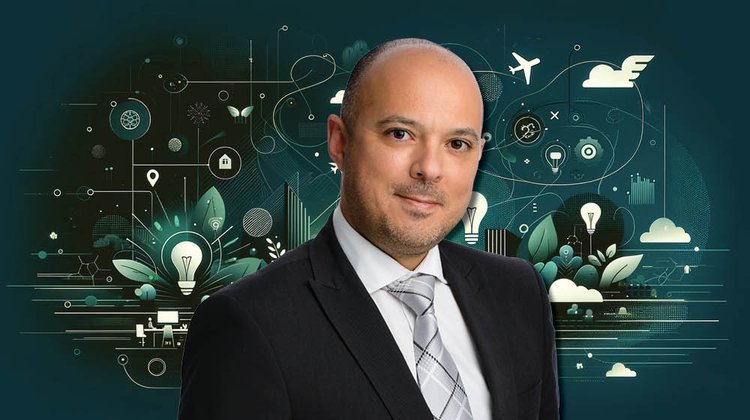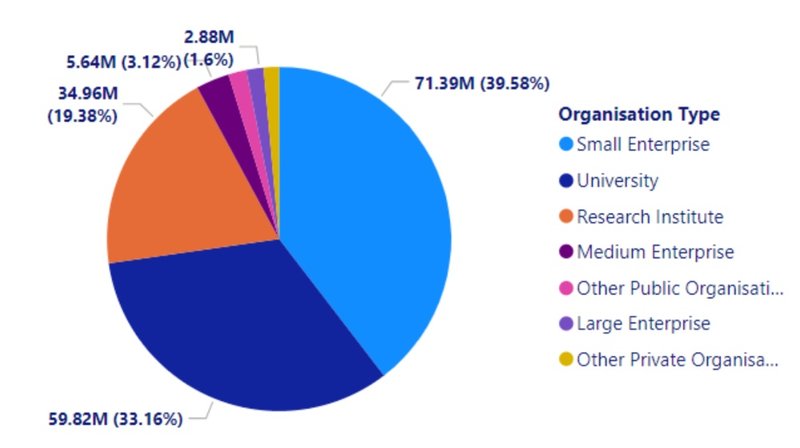Theodoros Loukaidis: The breadth of innovative activity in Cyprus is impressive for the small size of the island
07:08 - 24 September 2024

The breadth of innovative activity in Cyprus is impressive for the small size of the island, says Theodoros Loukaidis, Director General of the Research and Innovation Foundation (RIF), which has so far granted over €180 million to a diverse array of projects and organisations since its programmes first launched in 2016.
In an interview with CBN, Loukaidis breaks down where this funding has gone and explains why the state universities have received the lion's share of the funding.
He also reveals that RIF has funded projects that led to breakthroughs in medical research, sustainable solutions and innovation in manufacturing.
RIF recently published a report listing all the beneficiaries of its funding schemes since 2016, with the state universities, University of Cyprus (UCy) and Cyprus University of Technology, receiving the most funds. Why do you believe the universities have topped the list? Is RIF informed what the universities use this specific funding for?
Public universities in Cyprus have a long-established presence and play a critical role in the Cypriot research ecosystem. They employ nearly 50% of the island’s researchers and host a significant number of research infrastructures, including Centres of Excellence, which are co-funded by the European Commission and the Cyprus Government. As a result, these institutions have received the largest share of research funding from 2016 to the present.
In recent years, at RIF we have observed a growing R&I ecosystem, with more organisations building capacity and successfully securing funding from the Foundation. While there are still gaps in capacity, we are actively addressing these through the measures introduced in our funding programmes.
Regarding the allocation of funding, we maintain a clear and structured process for each funding programme. This process includes proposal submission, independent evaluation by impartial experts, and a thorough assessment of the scientific merit and budget allocation of each proposal. Additionally, during project implementation, RIF conducts scientific evaluations and financial audits to ensure proper use of funds.
This approach guarantees transparency and accountability in all aspects of fund allocation and usage.
In total, €180,374,474.48 has been granted by RIF since 2016. Can you give us some examples of successful ventures to come out of this funding?
Since 2016, RIF has granted over €180 million to a diverse array of projects and organisations, including academic institutions, research centres, startups, and established companies.
Our funding has enabled numerous successful ventures across various sectors, and we are proud to see them place their products/services in the market, attract private investments and grow exponentially. And we have seen innovation happening across multiple sectors. From fintech/regtech, sportstech, foodtech, healthtech, greentech and so on. The breadth of innovative activity in Cyprus is impressive for the small size of the island!
We have supported the development of cutting-edge technologies, including advancements in artificial intelligence, machine learning, and digital transformation, which have enhanced the competitiveness of Cyprus in the global tech landscape.
Many of our funded projects have led to breakthroughs in medical research, such as new diagnostic tools and treatments, which contribute to the well-being of the community and have the potential for international impact.
Our funding has also facilitated projects focused on sustainable solutions, including renewable energy technologies and environmentally friendly practices that support Cyprus' transition to a greener economy but also greening of the shipping industry, yet another major challenge.
We have invested in ventures that drive innovation in manufacturing, helping companies adopt Industry 4.0 technologies, improve efficiency, and reduce costs.
Overall, these projects not only demonstrate the potential for significant economic impact but also contribute to solving global challenges. By supporting a wide range of ventures, RIF plays a critical role in fostering a vibrant and resilient R&I ecosystem in Cyprus.
How does RIF decide where its funding goes (what is the criteria beneficiaries must fulfil)? Is there a balance between private and public ventures?
RIF, in implementing the National Strategy for Research & Innovation approved by the Council of Ministers, distributes funding across five key pillars: Internationalisation, Research, Collaboration & Knowledge Transfer, Innovation, and Capacity Building & Structural Enhancement.
By nature, the funding process is competitive, with programmes designed to align with the objectives of the R&I Strategy. Proposals are evaluated based on the following criteria:
- Scientific research quality
- Value-added benefits
- Implementation details (including the working group, project plan, and time schedule)
The graph below clearly illustrates the balanced distribution of funding between public and private entities from 2016 to the present.


